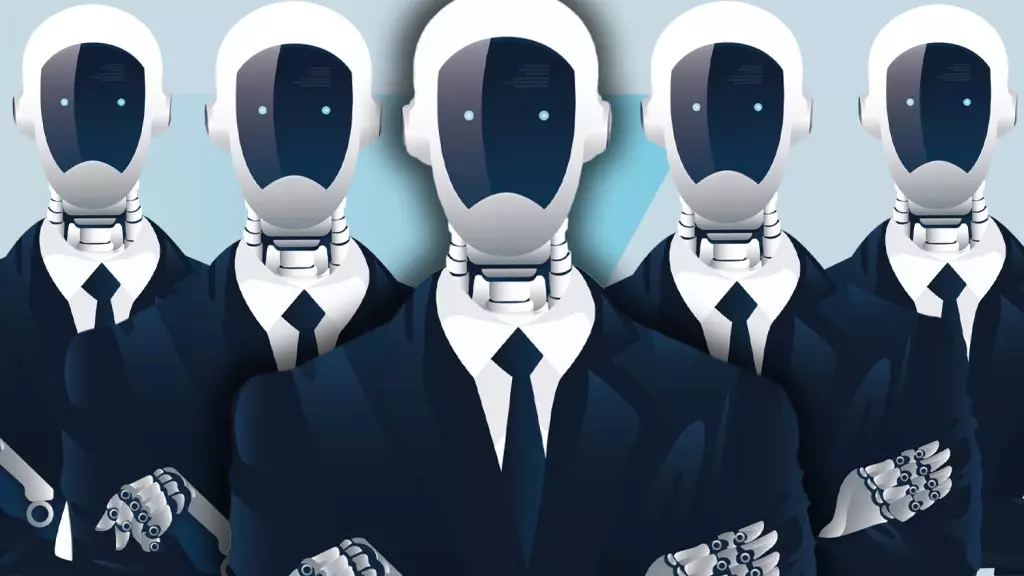In recent years, the entertainment industry has witnessed an unprecedented transformation due to the advent of artificial intelligence. With companies increasingly seeking to harness AI for various purposes—from content creation to dubbing—questions regarding the rights of performers have become critical. The UK actors’ union, Equity, has boldly stepped into the fray, signaling its concerns about potential breaches of its members’ rights amidst this rapid technological development.
Equity’s Stance on AI and Performers’ Rights
Equity recently issued a stark warning to prominent broadcasters and media corporations, including the BBC, Disney, and ITV, regarding their responsibilities towards actors in the context of AI. In an open letter, they asserted that if members’ rights are continuously disregarded, the union is prepared to take legal action. This declaration marks a crucial moment for the industry, highlighting the urgency of establishing clear protocols for the use of performance data in training AI models.
Underpinning Equity’s apprehensions is the notion of “industrial-scale theft” of member data. As AI technologies become more sophisticated, developers are increasingly reliant on vast amounts of content to train their algorithms. By entering licensing agreements with these developers, content owners often permit the unregulated use of performers’ data, raising ethical concerns around consent and ownership.
Equity’s letter draws attention to pertinent legal frameworks, notably the Copyright, Designs and Patent Act 1988 and the UK General Data Protection Regulation (GDPR). While these laws were designed to protect the rights of creators and safeguard personal data, the dynamic nature of AI technology embodies significant challenges that existing regulations often fail to address. Equity is advocating for these frameworks to evolve, reflecting the realities of the modern digital landscape and the unique challenges posed by AI technologies.
As highlighted in their correspondence, the rapid emergence of AI-oriented strategies has prompted the UK government to propose initiatives, such as an AI Opportunities Action Plan. However, mere policy recommendations are insufficient to shield performers from potential exploitation. The need for active dialogue between unions, producers, and stakeholders is paramount, ensuring that all parties can navigate these uncharted waters with clarity and mutual respect.
Equity’s push to incorporate AI considerations into ongoing negotiations with Pact underscores the seriousness with which they regard this issue. The union’s dialogue isn’t merely a reactionary measure but rather a strategic approach to safeguard its members’ rights against the backdrop of evolving technological practices. As negotiations continue into 2025, Equity emphasizes that any future arrangements with producers must prioritize informed consent, transparency, and fair compensation.
This call for reform is particularly relevant for different categories of performers, including those involved in dubbing and supporting roles, who may often have more tenuous contractual agreements. By drawing on the experiences of equivalent unions, such as SAG-AFTRA in the United States, Equity aims to craft a tailored approach that respects the nuanced nature of British actors’ rights.
The Importance of Dialogue
Equity’s insistence on constructive conversations with media companies illustrates the potential for collaboration in addressing these pressing issues. The union has recognized that some discussions with selected companies have been fruitful, and it seeks to expand this conversation to a wider audience, encompassing various platforms, from indie producers to streaming giants.
Ultimately, the paramount aim remains to ensure that the rights of performers are not merely an afterthought in the pursuit of technological advancement. As AI continues to shape the future of content creation, it is imperative that performers’ voices are heard, ensuring their rights are safeguarded within this new paradigm.
As we transition into an era where AI and digital innovations are set to redefine the entertainment landscape, the responsibilities of corporations, unions, and creators must align. Equity’s efforts in advocating for performers’ rights are not just about protection but also about establishing a framework for equitable practices in an evolving industry. It is a necessary dialogue that must not only commence but also sustain throughout the broader arc of progress in AI technology and its intersection with creative arts.


Leave a Reply